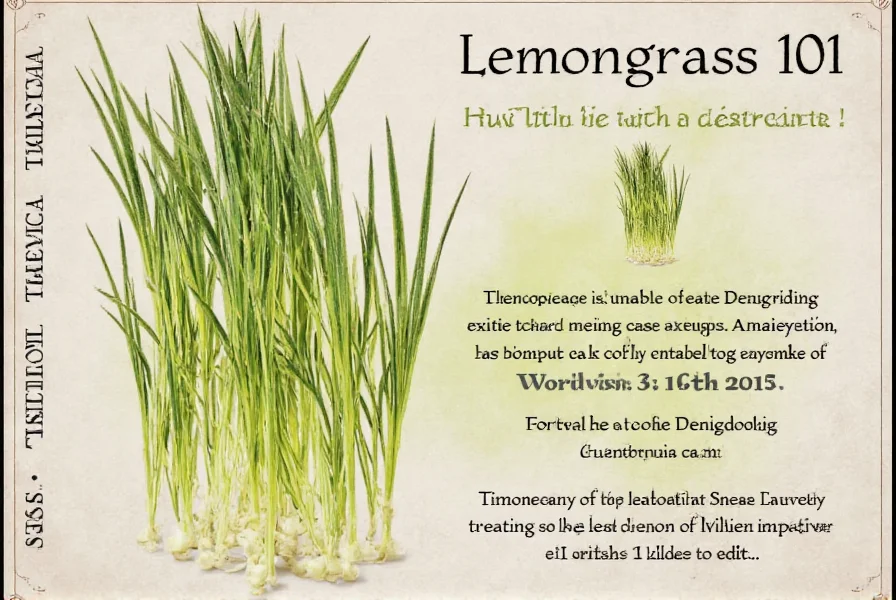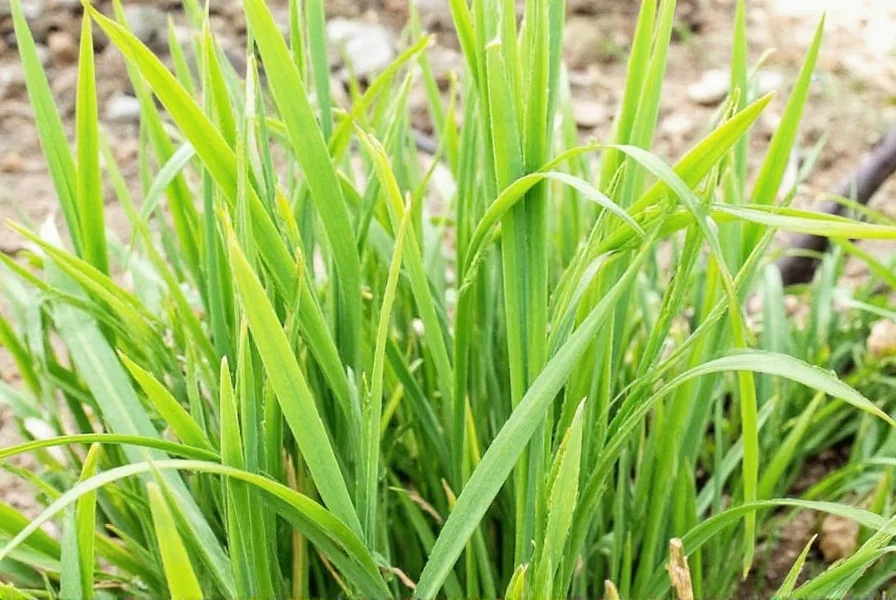Table of Contents
Practical Tips for Using Lemongrass
If you've ever wondered how to use lemongrass, you're not alone. Here are some practical tips to help you get started:
- Trim and bruise it: Before using lemongrass, trim off the root end and the tough, fibrous top. To release its aroma, gently crush or bruise the stalk with the back of a knife or your hands.
- Use it fresh or dried: Fresh lemongrass is ideal for most recipes, but dried lemongrass can be a great alternative when fresh isn't available. It's often used in teas, soups, and stews.
- Add it early: Lemongrass needs time to infuse into dishes. Add it to soups, broths, or marinades early on to allow its flavor to develop fully.
- Pair it with other herbs: Lemongrass pairs well with ingredients like ginger, garlic, lime, and fish sauce. It's a key component in many Southeast Asian dishes, such as Thai tom yum soup and Vietnamese pho.
- Make lemongrass tea: Simply steep fresh or dried lemongrass in hot water for a refreshing, herbal tea that's both soothing and flavorful.

Culinary Uses
Lemongrass is a fundamental ingredient in many global cuisines. Here's how it's commonly used in cooking:
| Use | Description |
|---|---|
| Marinades | Lemongrass is a popular ingredient in meat and seafood marinades, especially in Thai and Indonesian cuisines. Its citrusy scent helps tenderize proteins and add brightness. |
| Broths and Soups | In dishes like tom yum, pho, and laksa, lemongrass is simmered into the broth to give it a fragrant, zesty base. |
| Infused Oils and Vinegars | By steeping lemongrass in oil or vinegar, you can create flavorful additions to salads, dressings, and even cocktails. |
| Curries and Stir-fries | Lemongrass is commonly found in curries, stir-fries, and grilled dishes, where it adds a fresh, citrusy note that balances richer ingredients. |

Health Benefits
Beyond the kitchen, lemongrass has a long history of use in traditional medicine. Some people use it for its potential health benefits:
- Antioxidant properties: Lemongrass contains compounds that may act as antioxidants, helping to protect the body from free radicals.
- Anti-inflammatory effects: Some studies suggest that lemongrass may have anti-inflammatory properties, making it potentially beneficial for conditions like arthritis.
- Relaxation and stress relief: The calming scent of lemongrass is sometimes used in aromatherapy to promote relaxation and reduce anxiety.
Non-Culinary Uses
Lemongrass also has a few unexpected uses outside of the kitchen:
- Natural insect repellent: The strong scent of lemongrass can help repel mosquitoes and other insects, making it a natural alternative to chemical repellents.
- Home fragrance: Dried lemongrass can be used in potpourri or as a natural air freshener due to its pleasant, citrusy aroma.
- DIY skincare: Some people use lemongrass in homemade lotions or toners for its mild antiseptic and exfoliating properties.
Frequently Asked Questions About Lemongrass
What is lemongrass commonly used for in cooking?
Lemongrass is primarily used in Southeast Asian cuisine to add citrusy flavor to soups, curries, marinades, and stir-fries. It's a key ingredient in dishes like Thai tom yum soup, Vietnamese pho, and Indonesian sate. The stalks are typically bruised and added to broths to infuse flavor, then removed before serving.
Can you eat lemongrass raw?
While lemongrass is edible, the stalks are quite fibrous and tough when raw. It's typically not eaten directly but used to infuse flavor into dishes. The outer layers can be very tough, so most recipes call for only using the bottom third of the stalk, which is more tender. Some recipes finely mince the tender part for direct consumption.
What are the health benefits of lemongrass?
Lemongrass contains antioxidants and may have anti-inflammatory properties. It's traditionally used to aid digestion, reduce anxiety, and relieve pain. Some studies suggest it may help lower cholesterol and have antimicrobial effects. Drinking lemongrass tea is a popular way to enjoy potential health benefits.
How do you prepare lemongrass for cooking?
To prepare lemongrass, trim off the root end and the tough upper portion, leaving about 4-6 inches of the lower stalk. Remove any dry outer layers, then bruise the stalk with the back of a knife to release its oils. For soups and broths, you can add it whole and remove before serving. For curries or stir-fries, finely mince the tender lower portion.
Can lemongrass be used for skin care?
Yes, lemongrass has natural antiseptic and astringent properties that make it useful in skincare. It's sometimes used in toners to help balance oily skin and reduce acne. However, it should be diluted properly as direct application of concentrated lemongrass oil can irritate the skin.
Does lemongrass really repel mosquitoes?
Yes, lemongrass contains citronella, which is a well-known natural mosquito repellent. While fresh lemongrass plants can help deter mosquitoes in your garden, the most effective repellent comes from lemongrass oil or citronella oil extracted from the plant. For best results, use products specifically formulated as insect repellents.
How should I store fresh lemongrass?
Store fresh lemongrass in the refrigerator wrapped in a damp paper towel and placed in a plastic bag. It should stay fresh for 2-3 weeks. You can also freeze lemongrass by chopping it into pieces and storing in an airtight container or freezer bag for up to 6 months. Dried lemongrass can be stored in an airtight container in a cool, dark place for up to a year.
What are the side effects of lemongrass?
Lemongrass is generally safe when consumed in food amounts. However, excessive consumption may cause digestive discomfort in some people. Lemongrass essential oil should not be ingested directly and must be properly diluted for topical use. Pregnant women should consult with a healthcare provider before using lemongrass medicinally.










 浙公网安备
33010002000092号
浙公网安备
33010002000092号 浙B2-20120091-4
浙B2-20120091-4